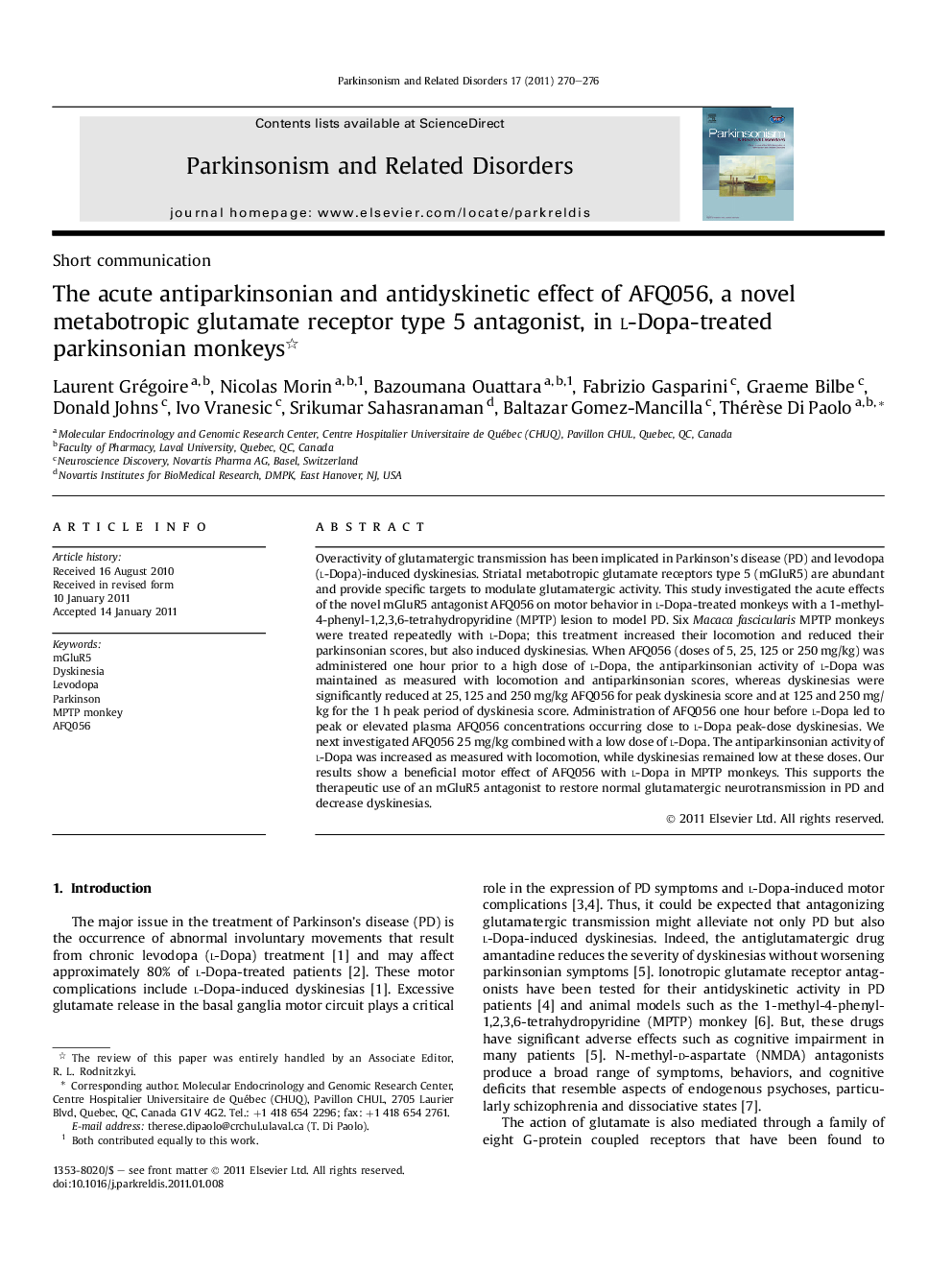| Article ID | Journal | Published Year | Pages | File Type |
|---|---|---|---|---|
| 1920746 | Parkinsonism & Related Disorders | 2011 | 7 Pages |
Overactivity of glutamatergic transmission has been implicated in Parkinson’s disease (PD) and levodopa (l-Dopa)-induced dyskinesias. Striatal metabotropic glutamate receptors type 5 (mGluR5) are abundant and provide specific targets to modulate glutamatergic activity. This study investigated the acute effects of the novel mGluR5 antagonist AFQ056 on motor behavior in l-Dopa-treated monkeys with a 1-methyl-4-phenyl-1,2,3,6-tetrahydropyridine (MPTP) lesion to model PD. Six Macaca fascicularis MPTP monkeys were treated repeatedly with l-Dopa; this treatment increased their locomotion and reduced their parkinsonian scores, but also induced dyskinesias. When AFQ056 (doses of 5, 25, 125 or 250 mg/kg) was administered one hour prior to a high dose of l-Dopa, the antiparkinsonian activity of l-Dopa was maintained as measured with locomotion and antiparkinsonian scores, whereas dyskinesias were significantly reduced at 25, 125 and 250 mg/kg AFQ056 for peak dyskinesia score and at 125 and 250 mg/kg for the 1 h peak period of dyskinesia score. Administration of AFQ056 one hour before l-Dopa led to peak or elevated plasma AFQ056 concentrations occurring close to l-Dopa peak-dose dyskinesias. We next investigated AFQ056 25 mg/kg combined with a low dose of l-Dopa. The antiparkinsonian activity of l-Dopa was increased as measured with locomotion, while dyskinesias remained low at these doses. Our results show a beneficial motor effect of AFQ056 with l-Dopa in MPTP monkeys. This supports the therapeutic use of an mGluR5 antagonist to restore normal glutamatergic neurotransmission in PD and decrease dyskinesias.
